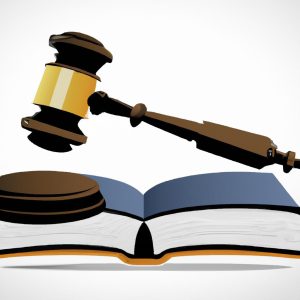In the complex world of estate planning, one must proceed with caution to navigate the potential obstacles and disputes that may arise. From contested wills to complicated family dynamics, the journey towards executing a seamless estate plan is filled with challenges that require careful consideration and expert guidance. In this article, we will explore the various pitfalls that individuals may encounter during the estate planning process and provide valuable insights on how to effectively address and overcome these challenges. As experienced practitioners at Morgan Legal Group in New York City, we have a deep understanding of estate planning, probate, elder law, wills, and trusts, and are dedicated to equipping our clients with the necessary tools and strategies to secure their legacies for generations to come.
Issues surrounding beneficiaries’ disputes in estate planning
When it comes to estate planning, disputes among beneficiaries can often arise, resulting in lengthy and costly legal battles. Some of the potential challenges that could cause conflicts include:
- Unequal Distribution: One of the most common issues is when beneficiaries feel that the distribution of assets is unfair.
- Lack of Clarity: If the estate plan is vague or ambiguous, it can lead to misunderstandings and disagreements among beneficiaries.
- Family Dynamics: Personal relationships and family dynamics can play a significant role in triggering disputes, especially when emotions are running high.
To address these challenges, it is crucial to communicate openly and clearly with all parties involved. Seeking the guidance of an experienced estate planning attorney can help ensure that the estate plan is comprehensive and precise, leaving no room for interpretation. Additionally, establishing a trust and appointing a neutral third party as a trustee can help mitigate conflicts and provide a more structured approach to asset distribution.
Examining potential conflicts between family members and heirs over inheritance
Estate planning can often lead to potential conflicts among family members and heirs, especially when it comes to inheritance. These disputes can arise due to a variety of reasons, such as:
- Unequal distribution of assets: When one family member receives a larger share of the estate than others, it can lead to resentment and disputes.
- Family feuds: Existing tensions or conflicts within the family can escalate during the estate planning process, leading to arguments over who deserves what.
- Lack of communication: When there is a lack of transparency and communication about the estate plan, misunderstandings and disagreements can arise.
To address these challenges and disputes, it is essential to approach estate planning with careful consideration and open communication. By involving all family members in the process and clearly outlining your intentions in your estate plan, you can help prevent misunderstandings and conflicts down the line. Seeking guidance from a professional estate planning attorney, like those at Morgan Legal Group in New York City, can also help you navigate potential disputes and ensure that your wishes are carried out smoothly.
Addressing challenges related to taxation and asset distribution in estate planning
When it comes to estate planning, there are several potential challenges that can arise, particularly in the areas of taxation and asset distribution. One common issue is the unequal distribution of assets, which can lead to disputes among beneficiaries. Additionally, navigating the complex tax laws and regulations surrounding estate planning can also be a challenge.
To address these challenges, it is crucial to work with an experienced estate planning attorney who can help you understand the tax implications of your estate plan and ensure that your assets are distributed according to your wishes. They can also assist in creating a tax-efficient plan that minimizes the tax burden on your beneficiaries.
In conclusion, estate planning can be a complex and challenging process, but with the right guidance and strategies, you can overcome any potential obstacles and ensure that your legacy is protected for future generations. By communicating openly and seeking the help of a professional estate planning attorney, you can navigate the potential disputes and challenges that may arise and secure your assets for your loved ones.Navigating the complexities of tax laws can be a daunting task, especially when it comes to determining the value of assets and calculating tax liabilities. This can often lead to disputes among beneficiaries and heirs. To avoid such conflicts, it is crucial to seek guidance from a knowledgeable estate planning attorney who can assist in minimizing tax liabilities and ensuring compliance with relevant laws and regulations.
Another common challenge in estate planning is disagreements among family members over the distribution of assets. This can be a contentious issue, particularly when there are multiple beneficiaries with competing interests. To prevent potential conflicts, it is essential to clearly outline your wishes in a legally binding document, such as a Will or Trust. Additionally, working with an experienced attorney can help ensure that your estate plan is comprehensive and addresses all potential areas of disagreement. By taking proactive steps to address these challenges, you can ensure that your assets are distributed according to your wishes and that your loved ones are provided for in the future.
Strategies for Minimizing Legal Disputes and Ensuring a Smooth Estate Planning Process
When it comes to estate planning, there are various potential challenges and disputes that could arise if not addressed proactively. Some of the common issues include:
- Family disagreements over inheritances
- Validity of the will being contested
- Legal challenges from disgruntled heirs
To address these challenges and ensure a smooth estate planning process, it is crucial to implement the following strategies:
- Communication: Clear communication with all family members and beneficiaries can help prevent misunderstandings and disagreements.
- Professional guidance: Seeking help from experienced estate planning attorneys can ensure that your will is legally sound and minimizes the risk of legal challenges.
- Updating your estate plan: Regularly reviewing and updating your estate plan can help prevent disputes arising from outdated or unclear instructions.
Q&A
Q: What are some potential challenges that could arise in estate planning?
A: Potential challenges in estate planning could include disputes over beneficiaries, disagreements over asset distribution, tax complications, and challenges to the validity of the will.
Q: How can disputes over beneficiaries be addressed in estate planning?
A: Disputes over beneficiaries can be addressed by clearly outlining the intended beneficiaries in the will, updating the will regularly to reflect changes in circumstances, and seeking legal guidance to ensure the validity and accuracy of the document.
Q: What measures can be taken to prevent disagreements over asset distribution in estate planning?
A: To prevent disagreements over asset distribution, individuals can consider creating a trust, designating specific assets to certain beneficiaries, communicating openly with family members about their wishes, and seeking professional advice to ensure a fair and equitable distribution.
Q: How can tax complications be managed in estate planning?
A: Tax complications in estate planning can be managed by understanding the tax implications of different estate planning strategies, seeking guidance from tax professionals, and exploring options such as lifetime gifts or charitable donations to minimize tax liabilities.
Q: What steps can be taken to address challenges to the validity of a will?
A: To address challenges to the validity of a will, individuals can ensure that the will is properly executed in accordance with state laws, address any potential disputes or disagreements with family members before they arise, and consult with an attorney to create a legally sound and enforceable estate plan.
In Retrospect
In conclusion, estate planning is a complex and intricate process that can be fraught with potential challenges and disputes. From family disagreements to changing laws and regulations, there are numerous obstacles that could arise when it comes to planning your estate. However, with careful consideration, effective communication, and the guidance of experienced professionals, many of these challenges can be addressed and mitigated. By taking the time to thoroughly plan and document your wishes, you can help ensure that your estate is managed and distributed according to your desires, minimizing the potential for disputes and conflicts among your loved ones. Remember, estate planning is not just about securing your assets for the future, but also about preserving harmony and unity within your family.
 Estate planning is a vital process that can greatly benefit individuals and their loved ones, ensuring that their assets and wishes are protected and carried out as desired. However, with the complexities of legal and financial matters, estate planning can also bring about potential challenges and disputes. To avoid these issues, it is essential to understand and address them before, during, and after the estate planning process. In this article, we will discuss the potential challenges or disputes that could arise in estate planning and provide practical tips on how to address them effectively.
Estate planning is a vital process that can greatly benefit individuals and their loved ones, ensuring that their assets and wishes are protected and carried out as desired. However, with the complexities of legal and financial matters, estate planning can also bring about potential challenges and disputes. To avoid these issues, it is essential to understand and address them before, during, and after the estate planning process. In this article, we will discuss the potential challenges or disputes that could arise in estate planning and provide practical tips on how to address them effectively.
1. Lack of Communication Among Family Members
One of the most common challenges in estate planning is the lack of communication among family members. This is especially true when it comes to discussing sensitive topics such as finances and wills. In some cases, parents may avoid talking to their children about their estate plan, assuming that it may create conflicts or discomfort. However, not discussing these matters can lead to misunderstandings and disputes later on.
How to Address It:
The key to addressing this challenge is open and honest communication. It is crucial to involve family members in the estate planning process, especially those who will be affected by it. This allows the planner to explain their decisions and goals, and for family members to express their concerns and ask questions. A family meeting or hiring a mediator can also be helpful in promoting healthy discussions and finding common ground.
2. Lack of Understanding or Misinterpretation of the Estate Plan
Another potential challenge in estate planning is when family members do not fully understand or misinterpret the estate plan. This often happens when legal jargon or complex financial terms are used, causing confusion and miscommunication. As a result, family members may disagree on how the assets should be distributed, leading to disputes.
How to Address It:
To avoid this issue, it is essential to provide clear and concise explanations of the estate plan. Using simple and easy-to-understand language can help ensure that all family members are on the same page. Additionally, seeking the advice of a professional estate planner or attorney can help clarify any confusing matters and ensure that the estate plan is legally sound.
3. Unforeseen Changes in Circumstances
Life is unpredictable, and unforeseen changes can happen at any time. These changes can have a significant impact on an individual’s estate plan. For example, a sudden illness or disability can require immediate changes to the plan, causing conflicts between family members who may have different opinions on how to handle the situation.
How to Address It:
The best way to address this challenge is to regularly review and update the estate plan. An estate plan should not be seen as a one-time document but rather a dynamic plan that can be adjusted as circumstances change. Reviewing the plan every few years, or after any significant life events, can help prevent potential disputes and ensure that the plan stays up-to-date.
4. Disagreements Over Distributed Assets
In some cases, family members may have conflicting views on how the assets should be divided. This could happen when there are multiple beneficiaries, or if certain family members feel that they have been left out or unfairly provided for in the estate plan. These disagreements can cause lasting rifts within the family and lead to costly legal battles.
How to Address It:
To avoid conflicts over distributed assets, it is crucial to have a clear and comprehensive estate plan in place. This should include detailed instructions on how the assets should be distributed and any specific intentions or wishes of the planner. Communication is also important in this case, as the planner can explain their reasons for their decisions and potentially prevent disputes. Seeking the guidance of a knowledgeable estate planning attorney can also help ensure that the assets are distributed fairly and in accordance with the law.
5. Challenges with Co-Ownership of Assets
Another potential challenge in estate planning is when assets are co-owned by multiple parties. These assets can include family businesses, jointly owned properties, or shared bank accounts. Conflicts can arise when one party wants to sell or manage the assets differently from the others, causing disputes and damaging relationships.
How to Address It:
When it comes to co-owned assets, it is essential to have clear and legally binding agreements in place. This can include documents such as co-ownership agreements, buy-sell agreements, or partnership agreements. These documents can outline each party’s rights and responsibilities and provide a framework for dealing with potential conflicts. Seeking legal advice before entering into any co-ownership arrangements can also help prevent future disputes.
Conclusion:
Estate planning can be a complex and emotional process, and there are several potential challenges and disputes that may arise. However, by understanding these challenges and taking proactive steps to address them, individuals can ensure a smoother and more peaceful transfer of their assets to their loved ones. It is crucial to communicate openly with family members, seek professional guidance, regularly review and update the estate plan, and have legally binding agreements in place when necessary. By doing so, individuals can not only minimize the risk of disputes but also ensure that their final wishes are carried out as intended.












